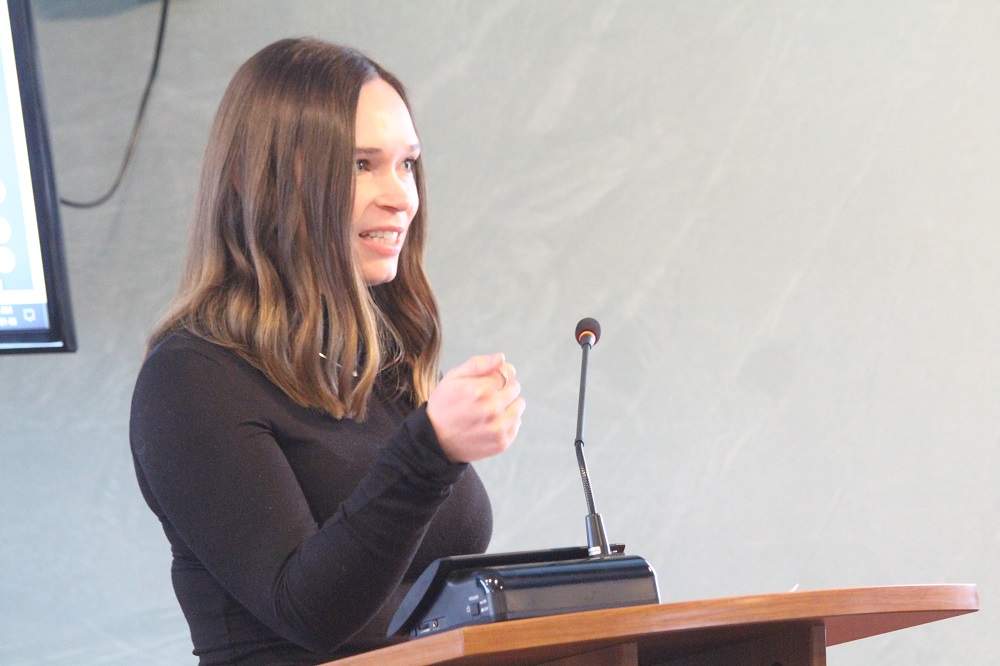The County’s climate change coordinator outlined some of the challenges municipal operations and services will face as weather patterns shift and presented a plan to deal with it during council’s Feb. 23 meeting.
Korey McKay, in a 44-page report, highlighted how the weather is changing in Haliburton County. It is trending towards higher temperatures, resulting in more heat waves and less snow. It also means increased precipitation, with rainfall concentrated in more intense events with longer dry spells in between. That will result in increased flood risk as well as lake levels that experience higher highs and lower lows. There will also be more frequent and intense storms of all kind, including ice and thunderstorms.
Gleaned from the plan are some examples of what this means for municipal operations.
For example, she said staff working outdoors will have more health risks due to more extreme heat.
“What can be done is updating health and safety policies to incorporate climate change considerations and continue to provide education, resources and training to outdoor staff to reduce heat stress,” she said.
She added there will be disruption to outdoor events and programming for winter-based recreation due to the increased snow melt. “What can be done is developing alternative programming for low snowpack conditions.”
She noted an expected disruption to transportation and emergency services due to the closure of roads and bridges from flooding.
“What can be done is ensuring new or replacement infrastructure is designed to reflect future climate conditions, including increasing culverts and bridges in size and height to reflect increased precipitation.”
During the meeting, McKay noted this plan focuses on climate impacts to municipal operations and services. Broader impacts for the community, including effects to private property, will be included in the Community Climate Action Plan, which will be the third and final comprehensive plan McKay is working on.
She is working on it now and the newly-created advisory group held its first meeting Feb. 16 and is scheduled to next meet in April.
According to Coun. Andrea Roberts, who sits on that group, “there’s a very enthusiastic group of people on that committee.”
McKay told council this plan “is to provide a first step for understanding the climate-related risks that impact our municipal operations and services, as well as providing steps to embed resiliency across our operations and infrastructure.”
She said she looked at parks, public works, water and wastewater and administration.
She noted her work piggybacked on a lot of things the townships have already been doing to address things such as severe rainfall, extreme heat and intense storms.
There is a strong business case for the plan as it is, she added, noting it is, “cost effective to proactively plan ahead. The Insurance Bureau of Canada estimates that for every dollar invested in risk mitigation measurements, $6 is saved in future damages.”
Coun. Pat Kennedy said it was important to share the plan with emergency planning and management at councils.
Coun. Carol Moffatt added there was no question climate change is impacting reservoir lakes. “The water levels that are already going up and down quite a bit is going to be significant more in the future.” She encouraged McKay to liaise with the Coalition for Equitable Water Flow, which is doing its own monitoring.
Coun. Brent Devolin said Minden Hills has probably suffered more from the negative effects of climate change than other municipalities due to its flooding history. He agreed they must continue to lobby the provincial and federal governments for assistance. He also noted the strong link to emergency planning. He encouraged McKay to continue to “thread the needle” through all of the existing planning across the County and other jurisdictions.
“I’m excited to see this go forward.”





